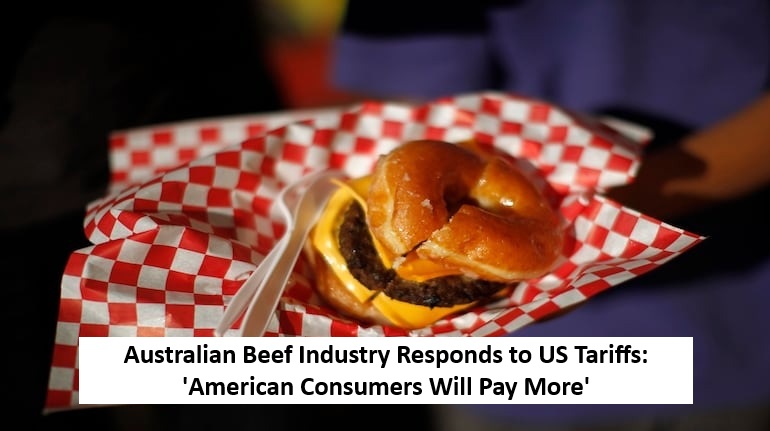
At a bustling cattle auction in Australia’s Southern Highlands, nearly 2,000 cows were up for bid as local auctioneers and ranchers pushed ahead with business as usual. But in the background, concerns loomed large following US President Donald Trump's announcement of a 10% import tariff on Australian goods—specifically criticizing the country’s beef exports.
Producers Say Tariff Costs Will Hit US Consumers
Australian beef farmers and traders have made it clear: the additional cost burden won’t be absorbed locally—it will be passed on to American consumers. That means higher prices for hamburgers and steaks in the US market.
“Beef going into America just got a lot dearer,” said Dhugald McDowall of Elders Cleary McDowall at the Moss Vale auction site. “In the short term, this could be quite detrimental to the U.S. economy.”
Australia’s Beef Is Crucial for US Fast Food Chains
Australia exports beef worth approximately A$4 billion ($2.52 billion) annually to the US. American fast-food giants, including McDonald's, rely heavily on Australian grass-fed beef due to its lower fat content, which is blended with fattier US beef to comply with USDA’s 30% fat limit in ground beef.
Garry Edwards, Chair of Cattle Australia, stated, “They are completely reliant on our grass-fed and high-quality grain-finished beef. American consumers are not going to like paying more for their burgers or steaks.”
Tariffs Shared with Beef Export Rivals
Australia now shares the 10% US tariff with global beef export giants Brazil and Argentina, who, along with Australia and the US, represent the top four beef exporters worldwide. Livestock agent McDowall added, “So we’re all at 10%—it really doesn’t change anything in terms of competition.”
Beef Ban Still in Place, Drawing Trump’s Criticism
Australia has banned US fresh beef imports since 2003 due to mad cow disease concerns. Trump pointed this out while announcing the tariffs, stating, “Australia won’t take any of our beef.”
Australia Eyes Alternative Markets
In response, Prime Minister Anthony Albanese said the government will help industries explore alternative markets. Trade Minister Don Farrell earlier warned that these tariffs could drive up the cost of McDonald's hamburgers, a move that could backfire politically given Trump’s well-known support for the brand.
James Fitzpatrick, a cattle farmer, summed up the industry’s outlook: “America’s not the only market. There’s a worldwide market out there.”
Read More: World Bank Approves 700 Million Dollars for Pakistan to Boost Economic Stability and Public Services

 Share
Share



